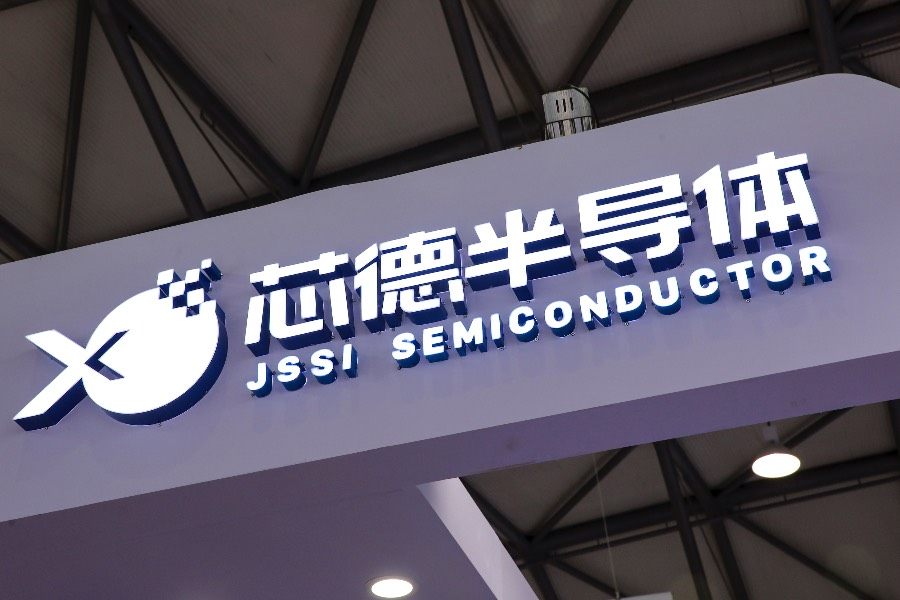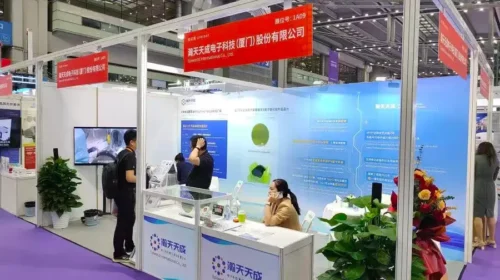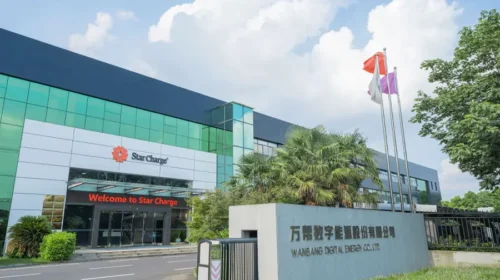Silicon Integrity has designs on an IPO after China chip rally

The provider of semiconductor packaging and testing services has applied for a Hong Kong listing, leveraging China’s strategic focus on the chip industry
Key Takeaways:
- Revenue growth has been slowing sharply, and the company is still landing in the red, which could cap its market valuation
- The firm is backed by Xiaomi and Taiwanese chipmaker MediaTek
Bai Xin Rui
They are the brains of modern electronics and a bargaining chip in international trade. Advanced semiconductors have become crucial components in everything from automotive systems to AI, creating incentives for designers to develop ever more powerful processors.
As China accelerates its drive for a self-sufficient chip industry, a domestic company specializing in semiconductor packaging and testing is stepping into the spotlight with an application to list on the Hong Kong stock market.
Jiangsu Silicon Integrity Semiconductor Technology Co. Ltd., founded in 2020, boasts big-name investors including Taiwanese chip titan MediaTek (2454.TW), electronic products designer Shanghai Longcheer Technology (603341.SH) and Xiaomi Changjiang — an investment fund operated by the Xiaomi group.
Silicon Integrity was set up by three entities described in the prospectus as limited partnerships and consultancies – Xinlianxin, Nanjing Yuanjun and Ningtaixin. Its biggest current stakeholder with a 9.49% holding is Ningtaixin, which counts Chairman Zhang Guodong and general manager Pan Mingdong among its partners.
Testing the design limits
Silicon Integrity provides designs and solutions for the packaging of chip wafers in casings attached to a circuit board. The industry has been pushing the boundaries of design to achieve ever smaller and more potent chip assemblies, helped by advanced packaging techniques in the final stages of fabrication.
The technology integrates chips and components using novel methods and materials to maximize performance and power efficiency in a compact design. With chip specifications varying widely across products, hefty capital costs and a fierce battle for qualified industry experts raise a high barrier to entry into the sector.
The packaging industry mainly operates on an outsourcing model in which prefabricated wafers are processed into packages and tested. This approach, known as Outsourced Semiconductor Assembly and Testing (OSAT), can either be broad-based or focused on chips for specific uses. According to the IPO application, Silicon Integrity ranks seventh among China’s general-purpose OSAT providers.
Its earnings for the first half of 2025 were driven by a range of packaging formats and manufacturing technologies, from QFN (Quad Flat No-Lead) and BGA (Ball Grid Array) to LGA (Land Grid Array), wafer-level architectures and 2.5D/3D processes.
QFN packaging, a mounting method using flat metal pads, generated 147 million yuan ($20.5 million) in revenue, a year-on-year rise of 25.5%. The BGA method using a soldering process to attach the chip to the board brought in 150 million yuan, 18.4% more than in the same period of 2024. The two packaging types contributed 31% and 31.8% respectively to total income for the six months, pushing overall revenue up 22% to 475 million yuan.
Costs outpace gains
However, the gains were wiped out by expenses. Costs reached 552 million yuan in the six-month period, 77.41 million yuan more than was received in revenue. The bottom line logged a net loss of 207 million yuan, mostly due to the cost of raw materials. However, falling rates of depreciation and amortization helped EBITDA turn positive to the tune of 9.34 million yuan in the first half of 2024, then surge to 59.34 million yuan in the latest half year.
The prospectus cited industry research that found the global market for chip packaging and testing rose from 495.6 billion yuan in 2020 to 649.4 billion yuan in 2024, a compound annual growth rate of 7%. As demand accelerates for consumer electronics and AI-powered computing, worldwide chip packaging demand was projected to reach 933 billion yuan by 2029.
That said, packaging orders for consumer electronics are highly seasonal, spiking with inventory build-ups ahead of the Lunar New Year holidays and typically boosting sales in the second and fourth quarter.
China’s push to develop a standalone chip industry has brightened the outlook for the sector. Leading foundries SMIC (0981.HK; 688981.SH) and Hua Hong Semiconductor (1347.HK; 688347.SH) have reported profits and seen their shares rally, taking their forward price-to-earnings (P/E) ratios to 104.9 times and 205 times respectively.
Silicon Integrity benefits from an impressive roster of backers, with ambitions to strengthen its R&D and expand into overseas markets, according to its IPO application. But its revenue growth has been slowing sharply, from 89% in 2023 to 62.5% in 2024 and 22% in the first half of 2025.
The pattern of persistent losses makes a high valuation unlikely, unless the company can accelerate growth and double down on cost controls. Without such improvements, its share performance may disappoint.
To subscribe to Bamboo Works weekly free newsletter, click here





